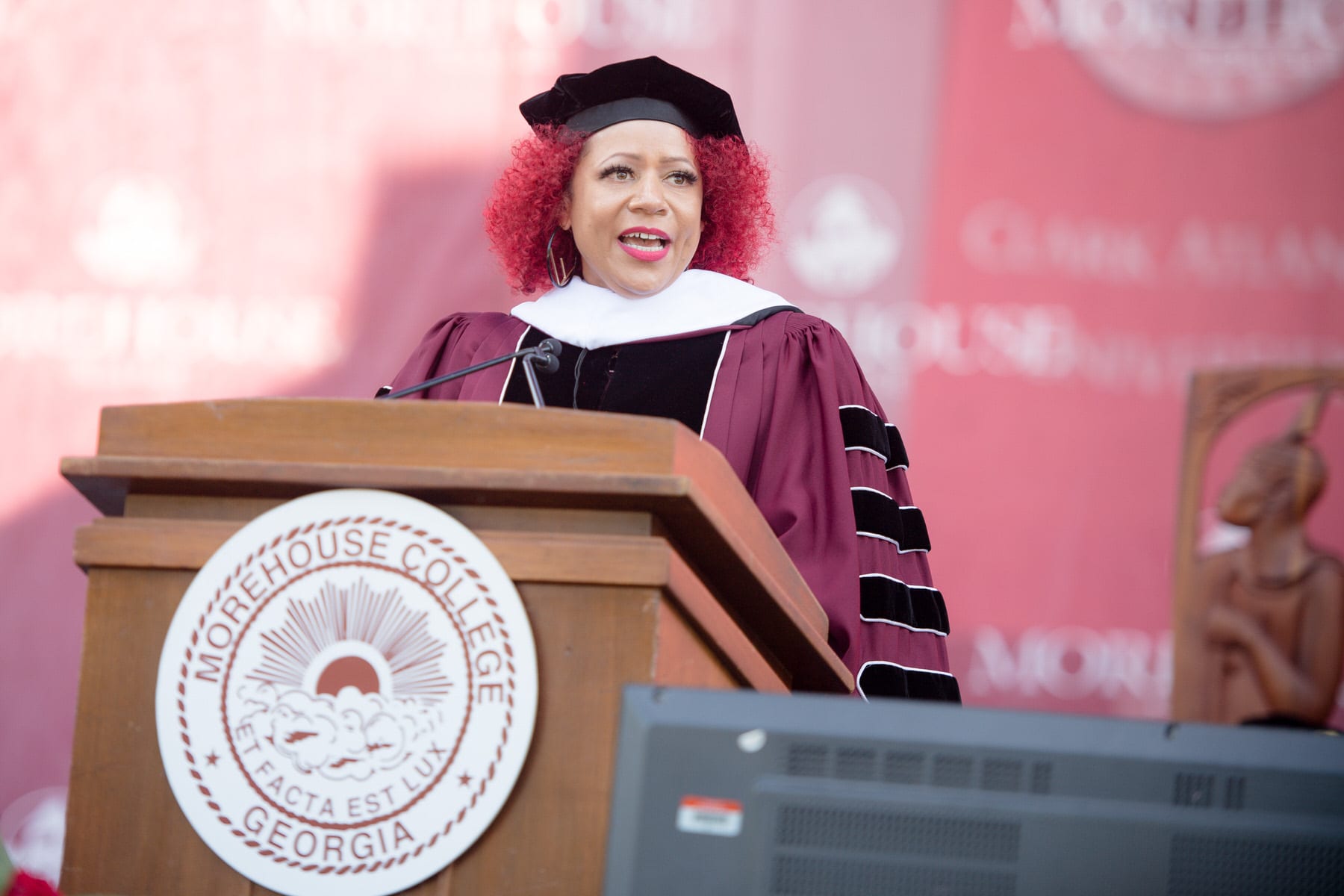In the two years since her Pulitzer Prize-winning 1619 Project was published, Nikole Hannah-Jones said she has experienced the lowest moments of her career — and the highest.
“It’s one of those cases where something really beautiful came out of something really ugly,” Hannah-Jones said at The 19th Represents Virtual Summit. “And I just feel like going to Howard is where I was supposed to be all along.”
Just last month, the New York Times journalist declined a tenure offer from the University of North Carolina at Chapel Hill, her alma mater, after experiencing pushback from conservatives and the board of trustees. Hannah-Jones had been named to a position that typically came with tenure, but the board initially only offered her a five-year contract, sparking outcry from faculty and placing the award-winning journalist in the crosshairs of a national culture war. Despite UNC’s eventual tenure offer, Hannah-Jones ultimately decided to join Howard University as the inaugural Knight Chair in Race and Journalism.
In a conversation with The 19th’s Editor-at-Large Errin Haines, Hannah-Jones talked about her plans for Howard University, the meaning of true representation and the urgency of this moment.
“At some point, instead of always working at a place that’s in opposition to you, we can go and build up our own,” Hannah-Jones said.
Howard and the more than 100 other historically Black colleges and universities have operated under the belief that Black excellence is a norm and Black scholarship matters, Hannah-Jones said.
“Centering Black Americans is critical to our understanding of any field of academia that you would want to go in,” she said. “And I just thought it was time in my career to bring my talents home. … Choosing to go to Howard will help other Black people know that actually one of our greatest callings is building our own institutions.”
In the fall, Hannah-Jones said she plans to launch the Center for Journalism and Democracy in her new academic position. The aim will be to strengthen investigative reporting and history-infused reporting at Howard University and other HBCUs with journalism programs.
She also spoke about the difficulties of rising professionally as a Black woman, an identity that is often doubly marginalized at the intersection of race and gender. Black women, she emphasized, should go where they are valued when they can.
“We cannot reach our full potential as journalists, as career women, as human beings if we’re constantly working at institutions that are battling us — where we’re not feeling respected, where we’re being stifled, where we’re being questioned and doubted,” Hannah-Jones said.
Though anti-Blackness and structural racism are not new, she said, the United States is in a critical moment. It is still reeling from a pandemic that disproportionately impacted people of color and a mass movement against police killings of Black people.
“Journalism is the firewall of our democracy,” Hannah-Jones said. “And I don’t think we have enough urgency in those who are covering the politics of our day around what is actually occurring.”
Hannah-Jones warned that our democracy is facing a “frightening period” — in part as a reaction to the election of Barack Obama, the country’s first Black president, which contributed to the election of a White nationalist president. Then, spurred by the false assertion that the 2020 election was “stolen” from former President Donald Trump, many Republican-controlled states have passed laws limiting when and where people can vote. The battle over voting rights continues to be waged in Congress and state legislatures across the country.
It’s all connected, Hannah-Jones said.
When the New York Times published the 1619 Project in August 2019, Hannah-Jones said she expected pushback but could not have anticipated the magnitude of the backlash. Trump threatened to defund schools that implemented the project into curriculum. The former Secretary of State Mike Pompeo publicly criticized it. Senator Tom Cotton, a Republican in Arkansas, introduced a bill this year in Congress to prevent elementary and secondary schools from receiving federal funds to teach the project. And several state legislators across the country are still trying to ban the project and other teachings about racism in classrooms.
The journalist became a symbol — admired by some, despised by others.
“I read the things that people say,” Hannah-Jones said. “It’s not just attacking my work, but my ethics as a journalist, my skills as a journalist and then also my humanity. I get some of the vilest, most threatening emails I’ve ever received in a 20-year career.”
And it took a toll.
Hannah-Jones said she looks to history to remain motivated in her work. She looks to Black journalists, like Ida B. Wells and Ethel Payne, who faced attacks without the backing of powerful institutions.
“In the end, I just do the work,” Hannah-Jones said. “I just read more. I study more. I try to take my vengeance out in the pen.”





